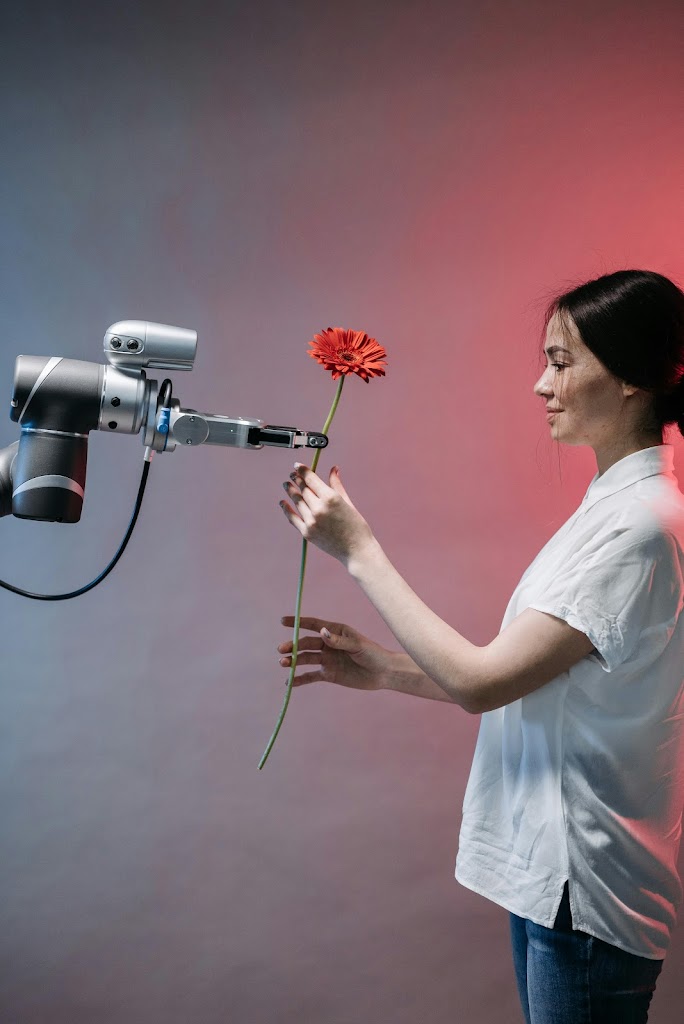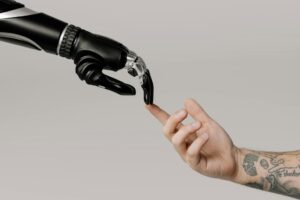Artificial Intelligence (AI) has revolutionized various industries, and health and fitness are no exceptions. With the increasing demand for personalized and efficient health solutions, AI has emerged as a powerful tool to enhance fitness routines, monitor health metrics, and provide tailored recommendations. This case study explores how AI is being used to improve health and fitness, with a focus on a real-life example to illustrate its impact.
The Role of AI in Health & Fitness
Personalized Fitness Plans
- Data Analysis: AI analyzes vast amounts of data, including personal health metrics, fitness goals, and workout history, to create customized fitness plans.
- Adaptability: AI systems can adjust fitness plans in real-time based on progress, injuries, or changes in health status.
- Recommendations: AI provides specific exercise recommendations tailored to individual needs, maximizing effectiveness and safety.
Health Monitoring
- Wearable Technology: AI-powered wearables track various health metrics such as heart rate, sleep patterns, and activity levels.
- Predictive Analytics: AI predicts potential health issues by analyzing trends and patterns in the collected data.
- Alerts and Reminders: AI sends timely alerts and reminders for medication, hydration, and exercise, helping users maintain a healthy routine.
Nutritional Guidance
- Dietary Recommendations: AI analyzes dietary habits and provides personalized nutrition plans.
- Calorie Tracking: AI-powered apps track calorie intake and provide insights into eating patterns.
- Food Recognition: Advanced AI can recognize food items from photos, making it easier to log meals and track nutrition.
Virtual Coaching
- AI Trainers: Virtual coaches use AI to provide real-time feedback and motivation during workouts.
- Progress Tracking: AI tracks progress over time and adjusts coaching strategies to keep users on track.
- Interactive Workouts: AI creates interactive and engaging workout sessions, making exercise more enjoyable.
Case Study: AI in Health & Fitness – The Success of Fit AI
Background
FitAI, a fitness technology company, developed an AI-powered app designed to enhance health and fitness through personalized plans and real-time coaching. The app integrates wearable technology, nutritional guidance, and virtual coaching to provide a comprehensive fitness solution.
Implementation
- User Onboarding: Users start by entering their fitness goals, health metrics, and preferences into the app.
- Data Collection: The app syncs with wearable devices to collect real-time data on activity levels, heart rate, sleep patterns, and more.
- AI Analysis: AI algorithms analyze the collected data to create personalized fitness and nutrition plans.
- Virtual Coaching: Users receive real-time coaching and feedback during workouts, along with progress reports and motivational tips.
- Community Support: The app features a community section where users can share their progress, challenges, and successes, fostering a supportive environment.
Results
- Increased Engagement: Users reported higher engagement and motivation levels due to the personalized and interactive nature of the app.
- Improved Health Metrics: Many users experienced significant improvements in health metrics such as reduced body fat percentage, increased muscle mass, and better cardiovascular health.
- Sustained Progress: The adaptability of the AI system helped users maintain their fitness routines and achieve long-term goals.
- Positive Feedback: User feedback highlighted the convenience and effectiveness of having a virtual coach and personalized recommendations.
Key Benefits of AI in Health & Fitness
Enhanced Personalization
- AI tailors fitness and nutrition plans to individual needs, making them more effective and enjoyable.
- Personalized recommendations increase adherence to fitness routines and healthy eating habits.
Real-Time Feedback
- AI provides instant feedback during workouts, helping users correct their form and avoid injuries.
- Real-time coaching keeps users motivated and engaged.
Data-Driven Insights
- AI analyzes large datasets to provide insights into health trends and progress.
- Predictive analytics help identify potential health issues before they become serious.
Accessibility
- AI-powered apps make high-quality fitness coaching and nutritional guidance accessible to a wider audience.
- Virtual coaching eliminates the need for expensive personal trainers.
Challenges and Considerations
Data Privacy
- Ensuring the privacy and security of personal health data is crucial.
- Users must trust that their data will be handled responsibly.
Accuracy
- The accuracy of AI recommendations depends on the quality and quantity of the data collected.
- Continuous improvement of AI algorithms is necessary to maintain high standards.
User Adaptation
- Some users may be hesitant to adopt AI technology in their fitness routines.
- Educating users about the benefits and ease of use can help increase adoption rates.
Future of AI in Health & Fitness
Advanced Personalization
- AI will continue to improve in providing even more precise and effective personalized plans.
- Integration with emerging technologies like augmented reality (AR) could enhance virtual coaching experiences.
Comprehensive Health Solutions
- AI will likely expand to offer more comprehensive health solutions, integrating mental health, physical fitness, and nutrition.
- Improved interoperability between different health and fitness devices will provide a seamless user experience.
Preventive Health
- AI will play a significant role in preventive health by identifying risk factors and recommending proactive measures.
- Early detection and intervention will become more common, leading to better health outcomes.
Artificial Intelligence is transforming the health and fitness industry by providing personalized, efficient, and accessible solutions. The case study of FitAI demonstrates the potential of AI to enhance fitness routines, monitor health metrics, and provide tailored recommendations. As AI technology continues to advance, it will offer even more sophisticated and comprehensive health solutions, helping individuals achieve their fitness goals and improve their overall well-being. Prioritizing privacy, accuracy, and user education will be essential to maximize the benefits of AI in health and fitness.





